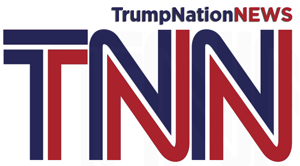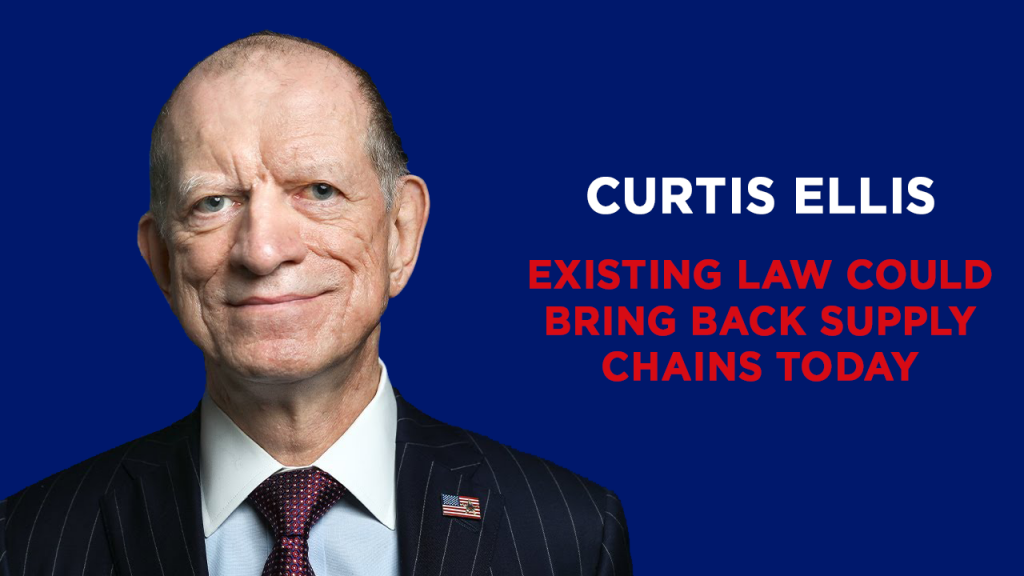Curtis Ellis shows how to immediately protect American workers
We don’t need to pass a law to bring manufacturing supply chains back to America. We just need to enforce the law already on the books.
The Trade Act of 1930 is the law. This landmark trade legislation has clear enforceable labor standards. It bans the importation into the United States of any goods made with slave labor or child labor. The Obama administration, to its credit, closed a loophole in the original act to make it a powerful weapon for protecting American workers and American labor standards.
The good news is we don’t need to hire a single person or create a new bureau to enforce the law. The federal government already has the means and manpower to do it.
Customs and Border Protection can stop shipments of goods it has a “reasonable suspicion” of being made in even the smallest part with forced or child labor from entering the U.S. CBP has already used this power against a Chinese garment maker and a Malaysian manufacturer of disposable rubber gloves, among others.
In addition to CBP’s civil enforcement actions, ICE’s Homeland Security Investigations (HSI) can pursue criminal investigations against individuals or companies that import merchandise produced with forced labor.
In 2018, ICE initiated 217 domestic and international forced labor cases and seized nearly $1.5 million of goods. It also made 560 criminal arrests resulting in 88 indictments and 92 convictions.
Investigators in the Labor Department’s International Labor Affairs Bureau and Homeland Securities Investigations are currently identifying the slave traders.
The best part is that CBP need only have a “reasonable suspicion,” not ironclad certainty, that articles are produced by forced labor to turn them back at the dock. Suspect articles are barred from being admitted into the United States until an investigation can be completed, a process that can take months. And there is no de minimus exception. Items with even trivial components made with forced labor can be turned away.
While CBP has taken some actions, there is much more that can be done.
A report from the Australian Strategic Policy Institute, “Uyghurs for sale,” found slave laborers from Chinese Communist Party concentration camps working in factories supplying 83 well-known global brands in the technology, clothing and automotive sectors, including Apple, BMW, Gap, Huawei, Nike, Samsung, Sony and Volkswagen.
The Chinese communist government has facilitated the mass transfer of imprisoned Uyghur Muslims and other ethnic minorities from the far west region of Xinjiang to factories across the country.
The report estimates more than 80,000 Uyghurs were transferred out of Xinjiang to factories across China between 2017 and 2019. They typically live in segregated dormitories, undergo ideological training outside working hours, are subject to constant surveillance and are forbidden from participating in religious observances.
For example, a factory in eastern China that manufactures shoes for U.S. company Nike is equipped with watchtowers, barbed-wire fences and police guard boxes. The Uyghur workers are unable to go home for holidays.
In a factory claiming to supply sportswear multinationals Adidas and Fila, Uyghur workers were transferred directly from one of Xinjiang’s “re-education camps.” Several Chinese factories making components for Apple or their suppliers are also using Uyghur labor.
In addition, cotton grown in Uzbekistan is harvested with forced labor. Customs agents could stop shipments of any garments made from that cotton, whether sewn in Bangladesh or China.
Imagine if a shipment of clothing destined for Gap stores just in time for Christmas shopping season couldn’t get off the dock because of slave labor issues.
Corporate executives up and down the line would move their supply chains back to North America in a heartbeat to avoid a repeat performance of that debacle.
The federal government could take this enforcement step right now with clothing, electronics and a raft of goods produced in communist China and other slave markets in Asia.
And now is a good time to do it. That would send a warning signal to retailers who are planning production runs for their Black Friday holiday sales.
Our ancestors fought a Civil War and labor wars to end slavery and win decent pay and working conditions in America.
We cannot allow global corporations to steal the moral victories we paid for with blood.
Curtis Ellis is a political communications consultant and senior policy adviser with America First Policies.
















